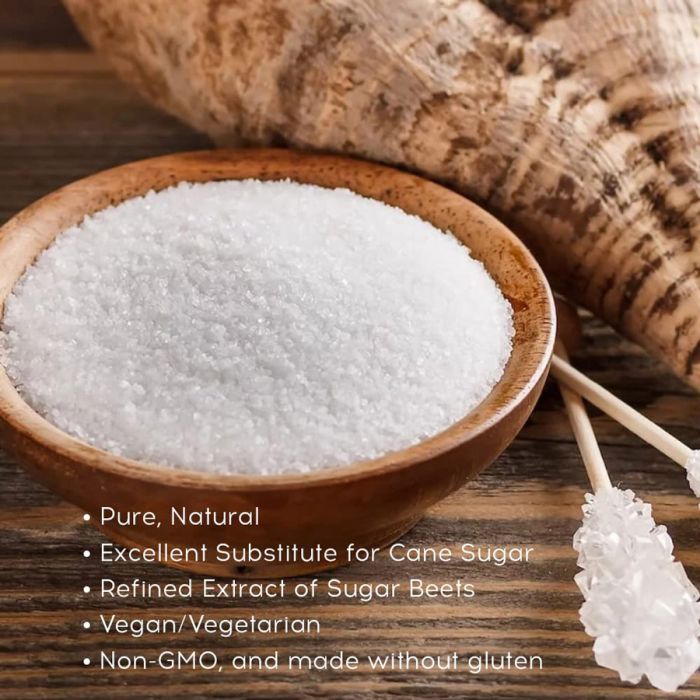People researching beet sugar vs cane sugar often want to know which blends well in beverages.
People researching beet sugar vs cane sugar often want to know which blends well in beverages.
Blog Article
Discover the Uses and Benefits of Beet Sugar Vs Cane Sugar in Your Daily Diet Plan
Discovering the unique top qualities of beet and cane sugar exposes greater than simply their sweetening capabilities; it highlights their one-of-a-kind influence on health and wellness and cookeries. Beet sugar, understood for its refined flavor, is commonly preferred in fragile desserts, whereas cane sugar, with its tip of molasses, includes richness to robust recipes. Each type holds its own dietary account and glycemic effects, inviting a much deeper understanding of their duties in a balanced diet plan and lasting intake practices.
Beginning and Production Procedures of Beet and Cane Sugar

The distinctive environments and dirt kinds required for growing sugar beets and sugarcane contribute to differences in their cultivation practices and geographic circulation, influencing the business economics and sustainability of their manufacturing. beet sugar vs cane sugar.
Nutritional Contrast In Between Beet Sugar and Cane Sugar
Despite originating from different plants, beet sugar and cane sugar are nutritionally very similar, both primarily consisting of sucrose. Each supplies concerning 4 calories per gram, translating to roughly 16 calories per tsp. Structurally, both sugars are composed of about 99.95% sucrose, with marginal quantities of various other materials like moisture and trace element, which do not considerably modify their dietary accounts.

Ultimately, when choosing between beet sugar and cane sugar based upon nutritional content alone, both offer identical advantages and disadvantages as they are basically forms of the same molecule-- sucrose, providing fast energy without various other nutrients.
Effect On Wellness: Glycemic Index and Caloric Material
Exploring further right into the impacts of beet sugar and cane sugar on health important link and wellness, it is necessary to consider their glycemic index and caloric content. Both sugars are categorized as sucrose, which contains glucose and fructose. This make-up leads them to have a similar effect on blood sugar level levels. The glycemic index (GI) of both beet and cane sugar is around 65, categorizing them as high-GI foods, important site which can create fast spikes in blood sugar degrees. This is an important element for people taking care of diabetes or those trying to maintain their energy degrees throughout the day.
Each sort of sugar consists of about 4 calories per gram, making their calorie content matching. For those keeping an eye on caloric intake, specifically when managing weight or metabolic wellness conditions, understanding this equivalence is vital (beet sugar vs cane sugar). Extreme usage of any kind of high-calorie, high-GI food can contribute to health and wellness problems such as weight problems, heart disease, and insulin resistance.
Environmental and Economic Factors To Consider of Sugar Production
Beyond health and wellness impacts, the production of beet and cane sugar additionally elevates considerable ecological and economic problems. Sugar beet cultivation has a tendency to need cooler environments and has a reduced geographical impact compared to sugar cane, which flourishes in exotic areas. However, both plants are intensive in terms of water usage and land occupation, possibly bring about deforestation and water deficiency. Financially, the global sugar market is extremely unstable, influenced by changes in global profession plans and subsidies. Many nations incentivize sugar production via monetary assistance, skewing market value and influencing small farmers adversely.
In addition, using pesticides and fertilizers in both beet and cane sugar cultivation can result in soil destruction and contamination, further influencing biodiversity and neighborhood water bodies (beet sugar vs cane sugar). The option in between cultivating sugar beet or cane commonly rests on neighborhood ecological conditions and financial aspects, making the sustainability of sugar manufacturing a complicated concern
Culinary Applications and Taste Distinctions
While the ecological and financial facets of sugar manufacturing are certainly considerable, the choice between beet and cane sugar additionally my latest blog post affects cooking applications and taste accounts. Beet sugar, originated from the sugar beet plant, is understood for its extremely neutral preference. This makes it a versatile component in baking, where it does not change the flavor of various other components. It dissolves swiftly and is perfect for use in cakes, cookies, and pastries.
Walking stick sugar, drawn out from sugarcane, frequently maintains molasses traces, which give an unique richness and deepness. The slight variation in moisture content between beet and cane sugar can impact the structure and uniformity of recipes, making cane sugar a recommended option for details recipes that benefit from its one-of-a-kind buildings.

Conclusion
To conclude, both beet and cane sugar have distinctive beginnings and manufacturing procedures, supplying comparable dietary accounts with small differences in sodium web content and taste. While their effect on health and wellness, especially concerning glycemic index and calories, is comparable, the selection between them often comes down to ecological, economic factors, and specific cooking requirements. Comprehending these elements can assist consumers in making educated choices that align with their wellness objectives and flavor choices.
Report this page